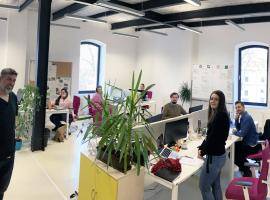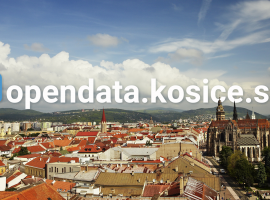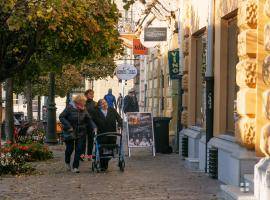The second hackathon of the Košice 2.0 project brought together skilled people from Slovakia and Ukraine

“In recent months, citizens of Košice have had the opportunity to see the impact of the war on people’s lives. It turned out that no matter how long people stay here, they need a job to make a living,” explains Marek Lavčák, the event’s coordinator.
Simplifying access to the labor market can ensure the removal of the language barrier, better orientation in job offers, or the ability to communicate directly with a potential employer. “We need to adapt the way of looking for a job that works in Slovakia to the conditions in which Ukrainians and Ukrainians are currently. Many of them are without internet or computers, they are looking for jobs via mobile phones,” adds Marek.
Preparation played a significant role
Each team’s task was to study the issue in the first step. They had data available from the leading Slovak internet job portal Profesia.sk. “We are well aware of the importance of the innovations we try to bring to our products. Being a Hack for Help partner was for us the opportunity to look at the current problem through a new perspective,” says Anton Khúla, marketing specialist at Profesia.sk. Richard Dlhý, head of the Department of strategic development of the City of Košice, similarly evaluates the advantages of hackathons: “People who have met here are not loaded by the daily routine of municipal employees, legislation, or bureaucracy. For us, it is an opportunity to see the situation from different, new angles.”
The highlight of the event were the project presentations in the early evening of the second day. Despite the fatigue, all teams tried their best to present the final solutions.
The winner was the team that programmed the SomzUA.sk application, which can be implemented on any job portal. The application was able to solve requirements such as babysitting, legal advice, or language courses. The authors consulted their idea with a Ukrainian volunteer who has been helping mothers in Slovakia since the beginning of the crisis.
Great attention was paid to the most vulnerable group of mothers with children, which was one of the criteria that decided the winners. “The empathic approach, which took into account the specific needs of these women, moved the project further, towards what the Košice 2.0 project is all about – bringing the city’s services as close to its inhabitants as possible,” explains Mišo Hudák from Východné pobrežie.
We’re not done with hackathons!
The hackathon format continues its series of urban challenges. You can look forward to another intensive creative marathon, the theme of which will undoubtedly be highly actual again.
More about the outcomes on the Košice 2.0 project website.
























